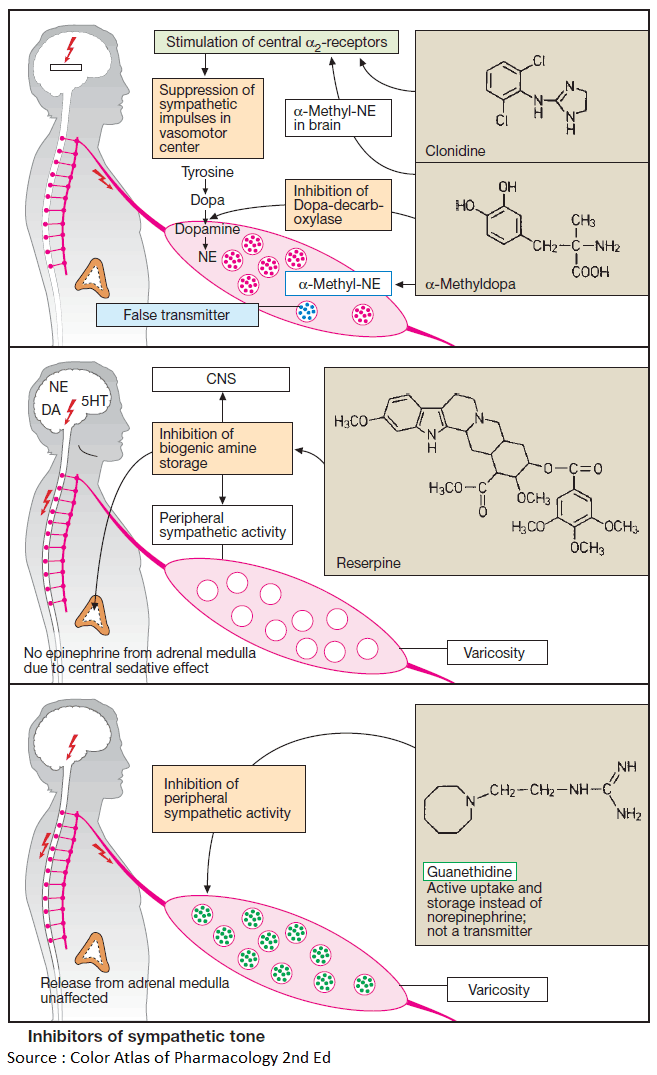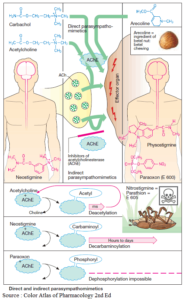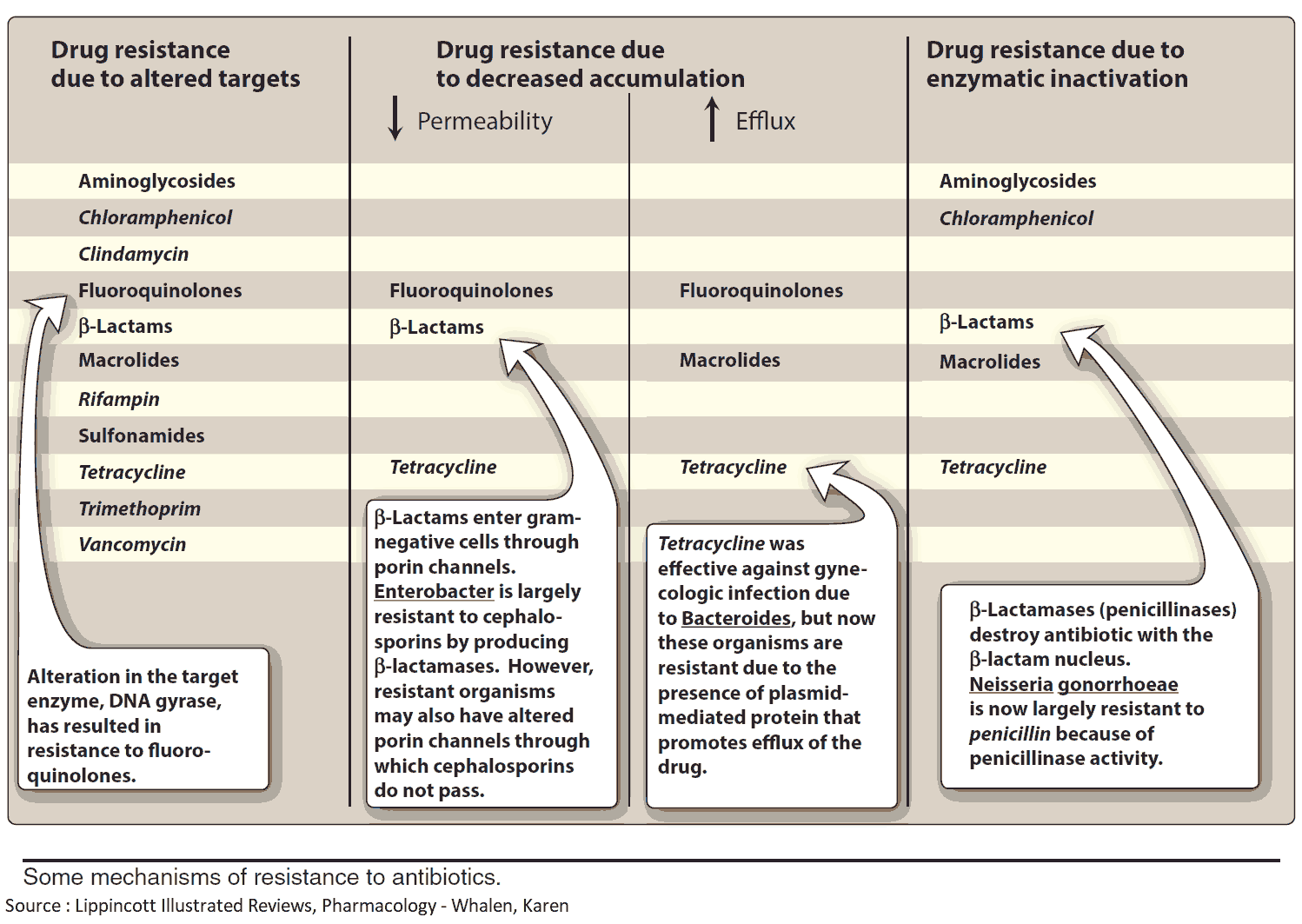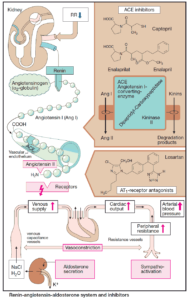Antiadrenergics are drugs capable of lowering transmitter output from sympathetic neurons, i.e., “sympathetic tone”. Their action is hypotensive (indication: hypertension) however, being poorly tolerated, they enjoy only limited therapeutic use.
Clonidine
Clonidine is an α2-agonist whose high lipophilicity (dichlorophenyl ring) permits rapid penetration through the blood-brain barrier. The activation of postsynaptic α2-receptors dampens the activity of vasomotor neurons in the medulla oblongata, resulting in a resetting of systemic arterial pressure at a lower level.
In addition, activation of presynaptic α2-receptors in the periphery leads to a decreased release of both norepinephrine (NE) and acetylcholine.
Side effects of Clonidine
- Lassitude
- Dry mouth
- Rebound hypertension after abrupt cessation of clonidine therapy
Methyldopa
Methyldopa (dopa = dihydroxyphenylalanine), as an amino acid, is transported across the blood-brain barrier, decarboxylated in the brain to α- methyldopamine, and then hydroxylated to α-methyl-NE.
The decarboxylation of methyldopa competes for a portion of the available enzymatic activity, so that the rate of conversion of L-dopa to norepinephrine (NE) (via dopamine) is decreased.
The false transmitter α-methyl-NE can be stored; however, unlike the endogenous mediator, it has a higher affinity for α2- than for α1-receptors and therefore produces effects similar to those of clonidine. The same events take place in peripheral adrenergic neurons.
Side effects of Methyldopa
- Fatigue
- Prthostatic hypotension
- Extrapyramidal Parkinson- like symptoms
- Cutaneous reactions
- Hepatic damage
- Immune-hemolytic anemia
Reserpine
Reserpine, an alkaloid from the Rauwolfia plant, abolishes the vesicular storage of biogenic amines (norepinephrine (NE), dopamine = DA, serotonin = 5-HT) by inhibiting an ATPase required for the vesicular amine pump.
The amount of norepinephrine (NE) released per nerve impulse is decreased. To a lesser degree, release of epinephrine from the adrenal medulla is also impaired.
At higher doses, there is irreversible damage to storage vesicles (“pharmacological sympathectomy”), days to weeks being required for their resynthesis. Reserpine readily enters the brain, where it also impairs vesicular storage of biogenic amines.
Side Effects of Reserpine
- Disorders of extrapyramidal motor function with development of pseudo-Parkinsonism
- Sedation
- Depression
- Stuffy nose
- Impaired libido, and impotence
- Increased appetite
These adverse effects have rendered the drug practically obsolete.
Guanethidine
Guanethidine possesses high affinity for the axolemmal and vesicular amine transporters. It is stored instead of norepinephrine (NE), but is unable to mimic the functions of the latter. In addition, it stabilizes the axonal membrane, thereby impeding the propagation of impulses into the sympathetic nerve terminals.
Storage and release of epinephrine from the adrenal medulla are not affected, owing to the absence of a re-uptake process. The drug does not cross the blood-brain barrier.
Side Effects of Guanethidine
Cardiovascular crises are a possible risk: emotional stress of the patient may cause sympathoadrenal activation with epinephrine release. The resulting rise in blood pressure can be all the more marked because persistent depression of sympathetic nerve activity induces supersensitivity of effector organs to circulating catecholamines.




